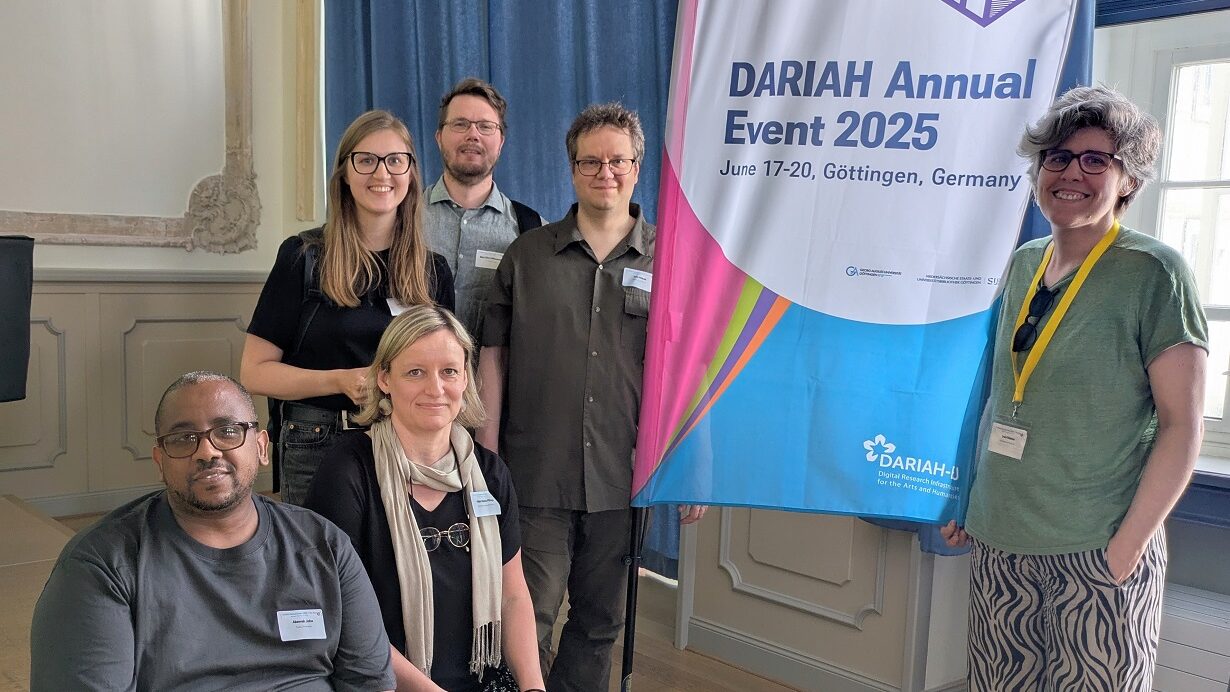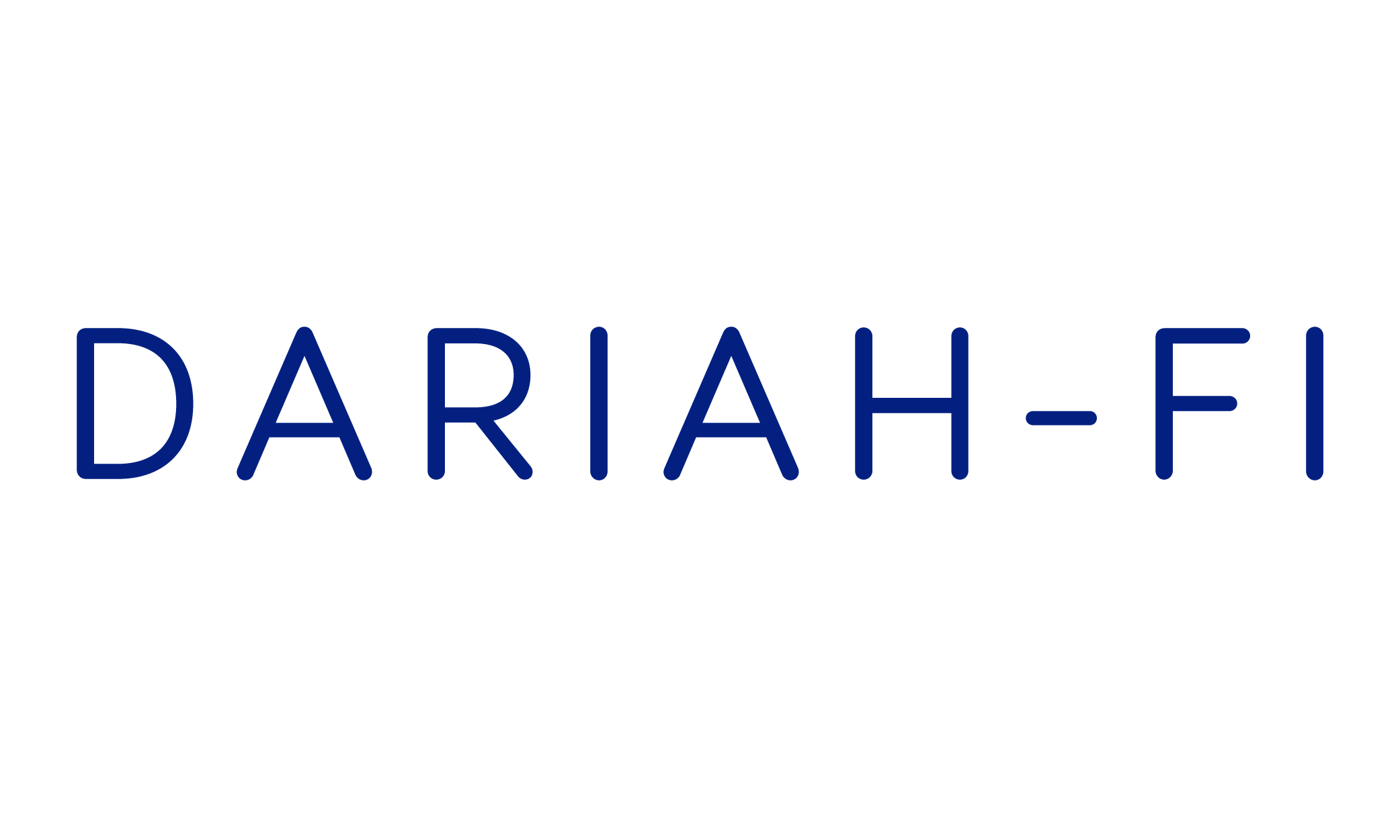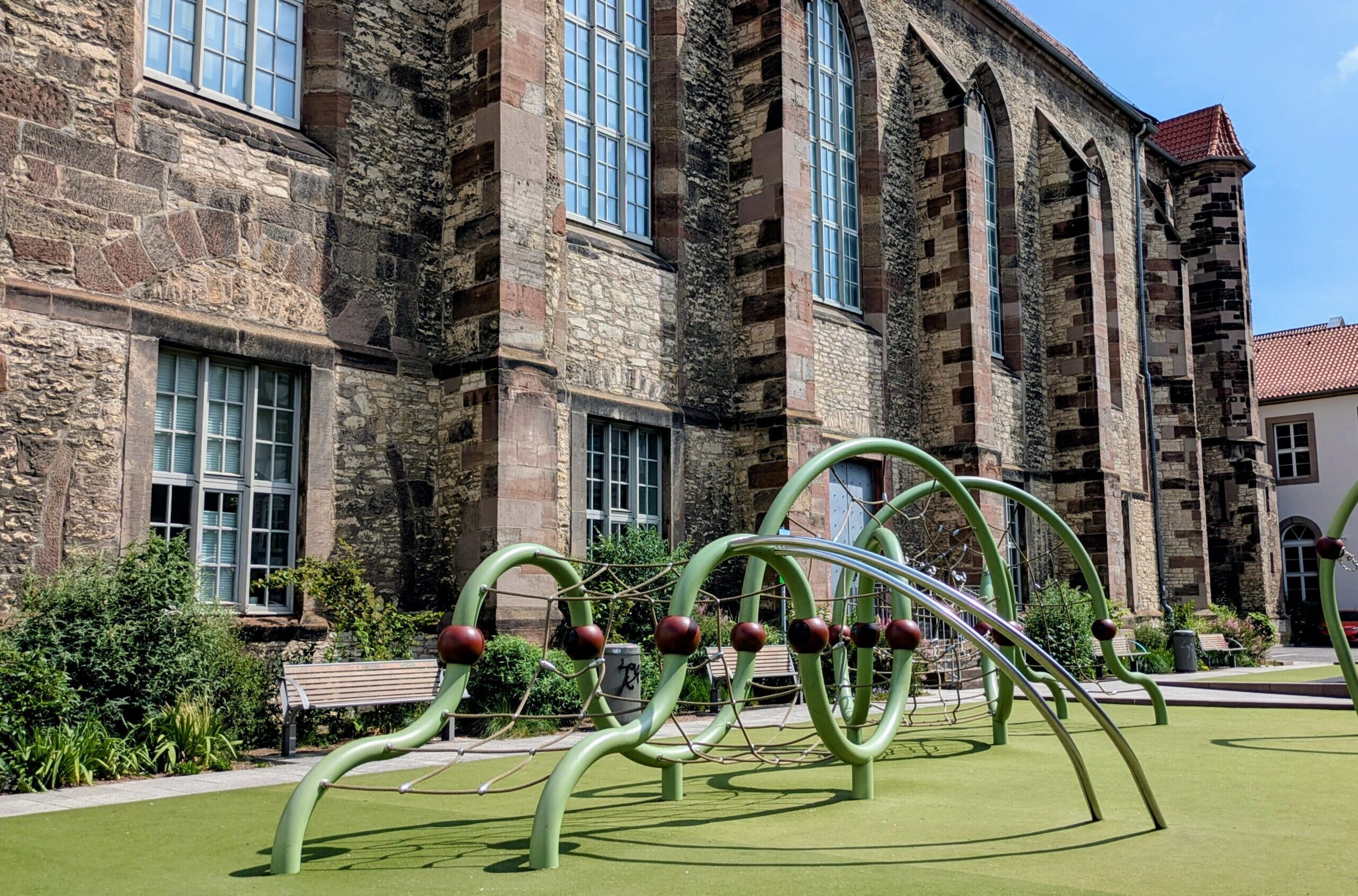The DARIAH Annual Events combine different forms of encounter between researchers in the arts and humanities, cultural heritage stakeholders, as well as computer, information and data science communities. Members, partner institutions and observer countries of DARIAH ERIC can attend this annual event for free, to seek collaborators and showcase national research enabled by our infrastructures, or simply, to be inspired by digitally-enabled research and teaching. This year Göttingen was chosen as the venue of this event that was dedicated to highlighting innovative approaches to studying “the Past”. This important university city hosted 270 participants from 35 countries from 17-20 June.
Even though we cannot claim yet to be a full member of this ERIC, Team Finland was present in this event, with various representatives from Helsinki, Turku and Oulu universities, as well as the National Library of Finland. We became eyes and ears to report back to Finnish research communities about interesting topics in this blog series.

A keynote in this event was documentary filmmaker and ex-UN ambassador Gabo Arora. The keynote reviewed his career, providing an evolution of immersive film technologies from the last 20 years. His humanitarian videos may be known to give voice to invisible communities such as Amazonas inhabitants, evicted people, Gaza refugees or Sufi dancers, but also for harnessing the potential of AR and immersive technologies to tickle the empathy of audiences towards humanitarian engagement. In his talk, Arora urged us to conceive immersive and latest imagining technologies as “a bicycle for the heart”1. While the talk did not leave anybody indifferent, it served as a call to take seriously the emotional capital of people that may encounter our research, to look in our SSH toolkit, and to seek alliances to tickle their empathy… with or without AR goggles.
Two delegates could follow up on this closer in the panel “Digital Storytelling”, introducing projects with a good dose of historical knowledge, mixed with creativity and a command of immersive technologies. For example, the serious Game Merchants of Istanbul by the Julius-Liebig Universität Giessen, is a collaboration among the chair for South European history, students, and a local “serious games” centre. The making of this game involved students, who usually have little awareness about the Ottoman Empire. The player is immersed in this chapter of history as a merchant traveling along documented historical routes. During the journey, the player can learn bargaining techniques and practice resource collecting by keeping a travel log. Fitting to the start of the summer holidays, when many will travel, another interesting project was “A day at Nicosia”. This is a virtual reconstruction of its international airport that ceased working in 1974 and is now protected heritage site from Cyprus. The project consisted of creating an explorable 3D reconstruction of the airport at its best, in the late 1960s. Through pop-up workshops and interviews, the project enabled collecting oral histories of people who worked or traveled through this airport. The result is an interactive museum exhibit, allowing visitors to navigate, listen or record new travel memories in connection to different spaces of the airport.
Other than engaging panels and walking tours in this city with an interesting academic heritage, our hosts from the University of Göttingen let us peek in a parallel symposium on text corpora, allowing learning about Text+, a data space funded by the DFG (the German Research Council) with text collections and corpora, digital editions and lexical resources for re-use. For example, in a few seconds, one can find materials, from historical newspapers to Wikipedia pages that reference Robert Oppenheimer, a somewhat problematic alumnus at Göttingen.
Text: Inés Matres / Images: Church of the Paulines. Today, State and University Library of Lower Saxony / Team Finland (Photos: Inés Matres)
- Arora borrows his thesis from Steve Jobs’ belief that “personal computers were a bicycle for the mind” ↩︎

